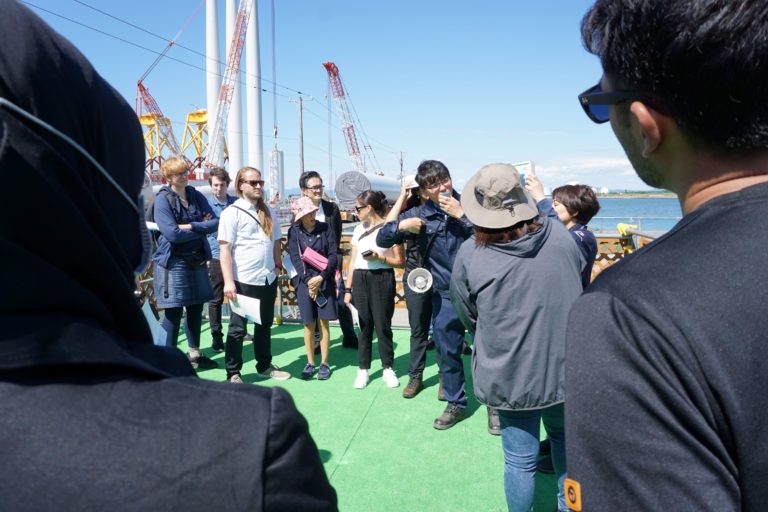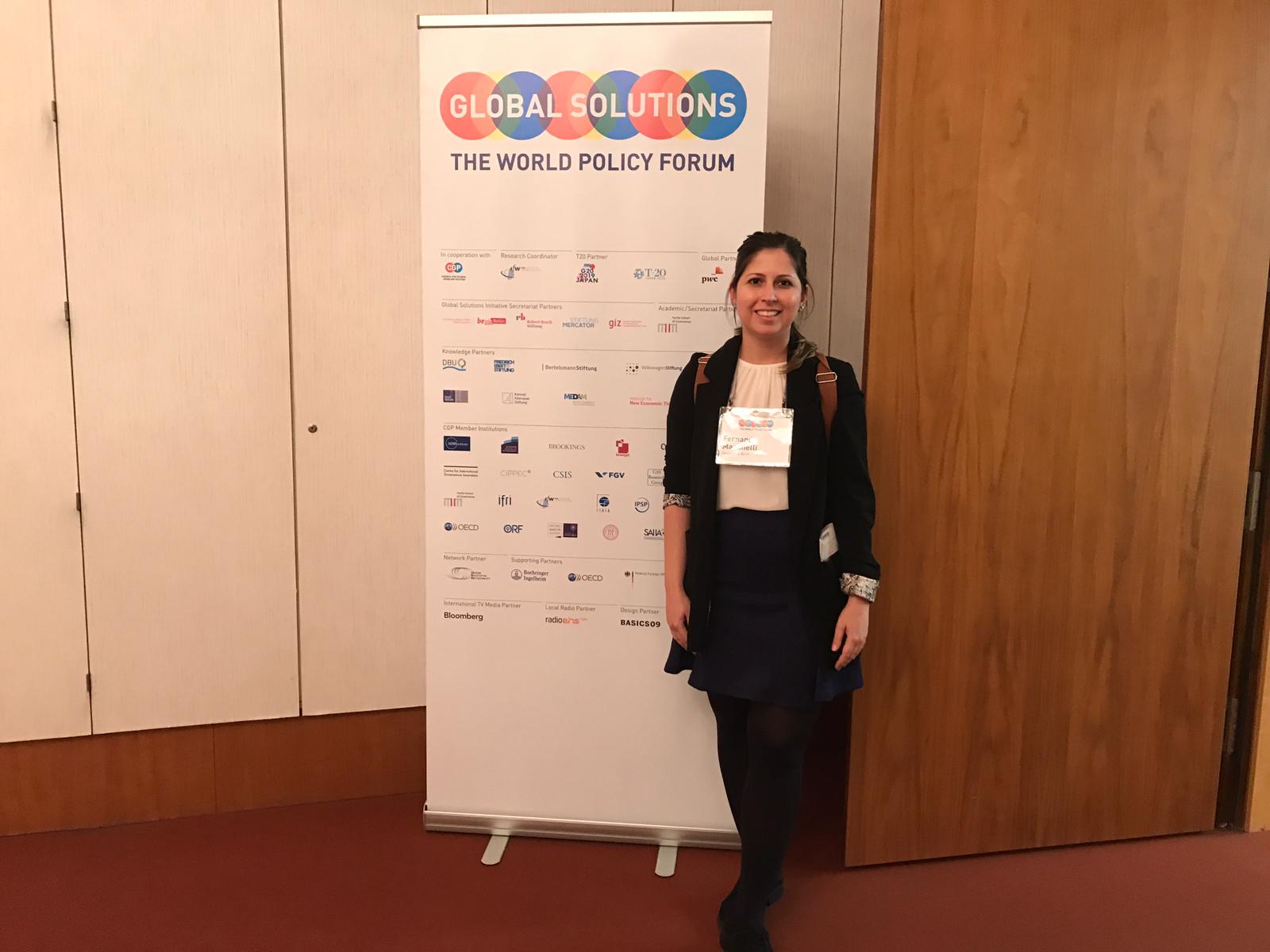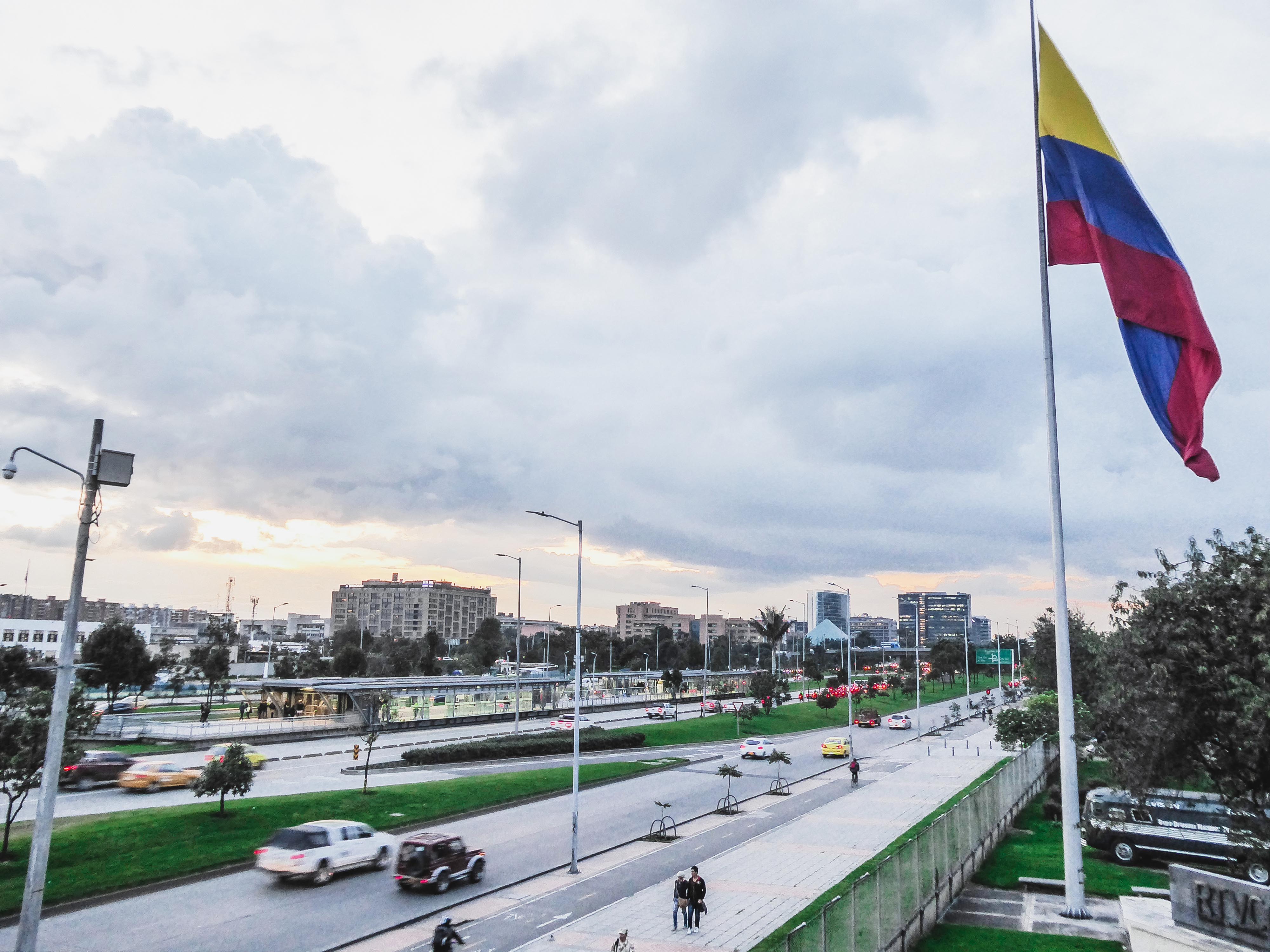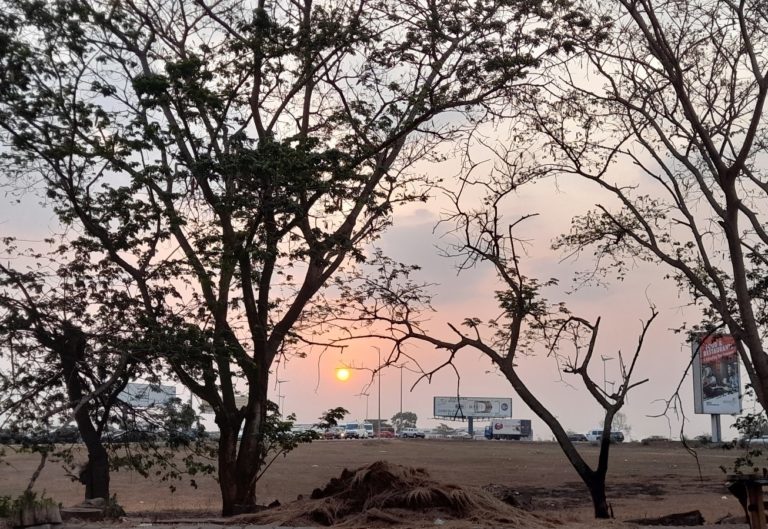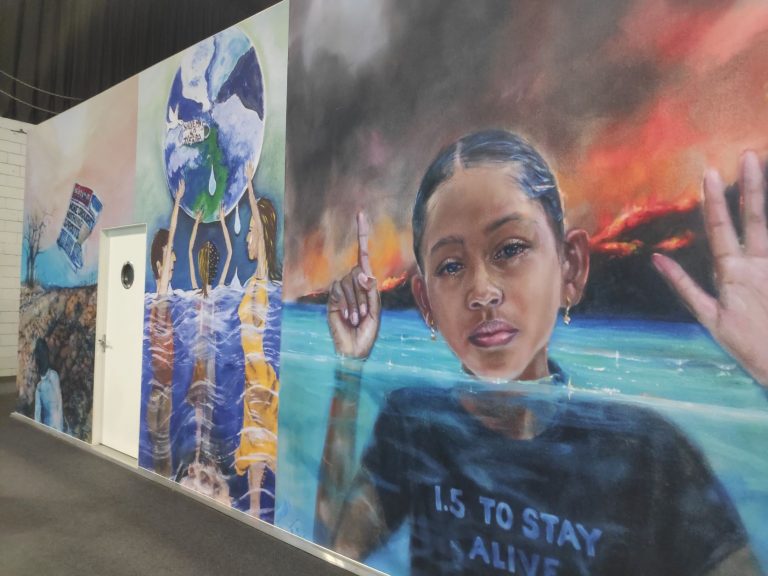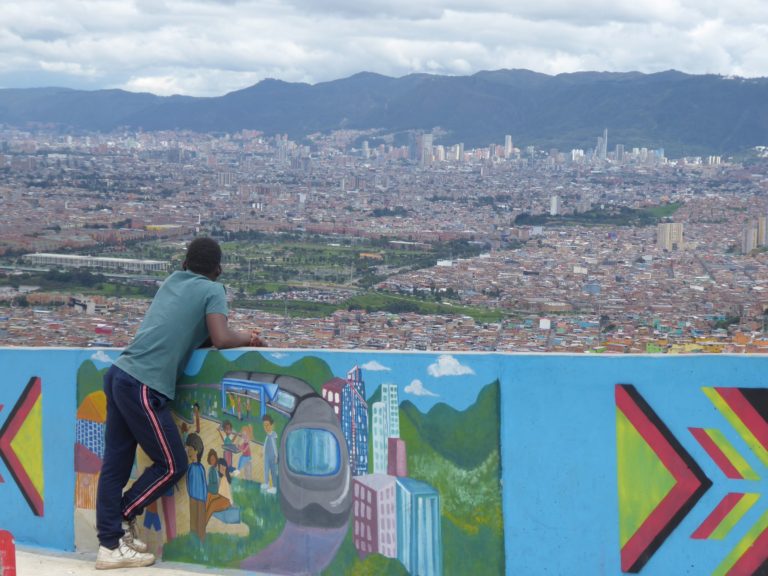German-Latin-American summer (school) part 1
Part 1: Impressions from our stay in Bonn
Five doctoral researchers from the Doctoral Studies Support Program reflect on their 2023 Summer School in Germany (June-July 2023) organized by ZEF.
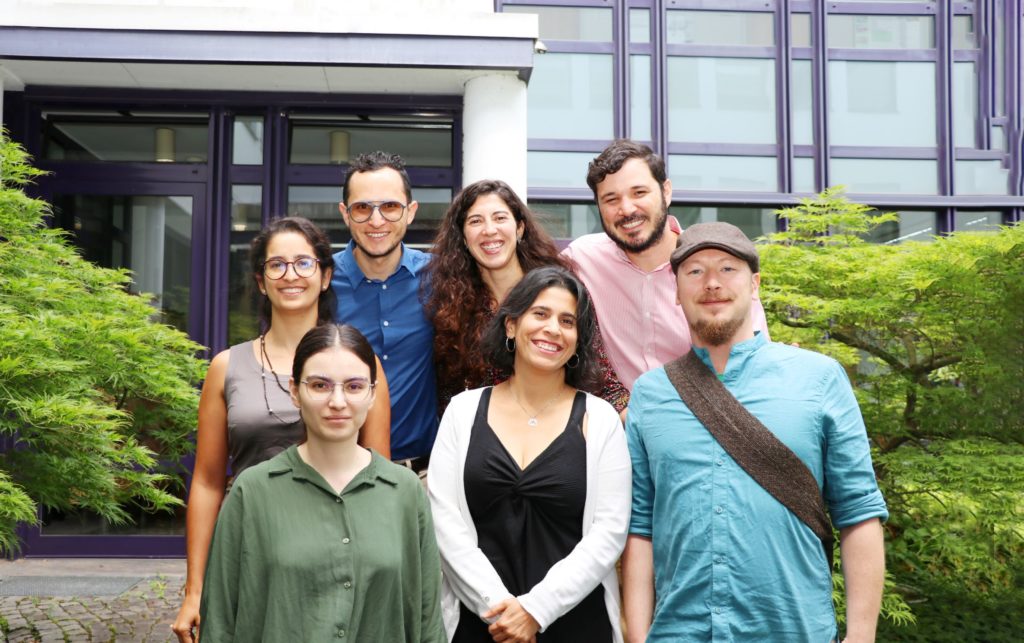
At ZEF, the five researchers, all based in South America, namely María Camila Montalvo Senior, Diego Quijano, Maria Marcela Lozano, Pablo González and Michael Weidemann, have been working on their research topics and had the opportunity to share and exchange research insights, results and experiences with international colleagues from ZEF and other institutions.
Full schedule
The DSSP Summer School started with the DAAD midterm conference “Digitalization in higher education and research in international cooperation for sustainability”, taking in Bonn on June 5-7, 2023. With participants from Africa, Latin America and Europe, the conference gathered around 60 researchers and staff from the seven DAAD-funded SDG-Graduate Schools to discuss their work and exchange experiences.
After the conference, the students spent time at ZEF and took part in a number of extracurricular activities (such as a visit to the Rhenish Lignite Site in the Ruhr-region in North Rhine-Westphalia) and in Daring Cities Conference.
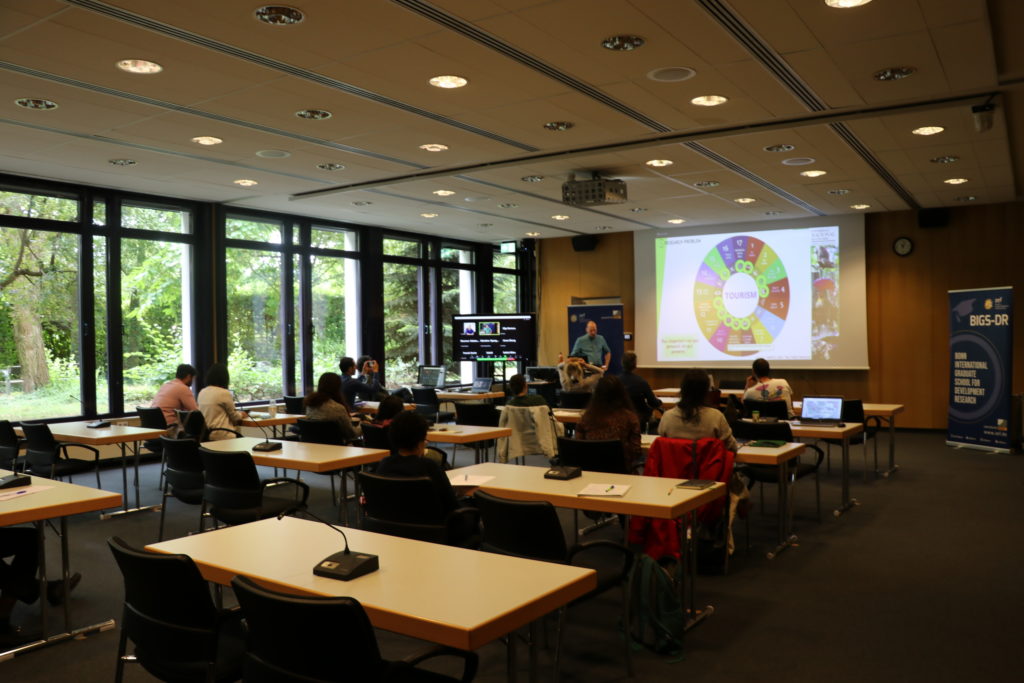
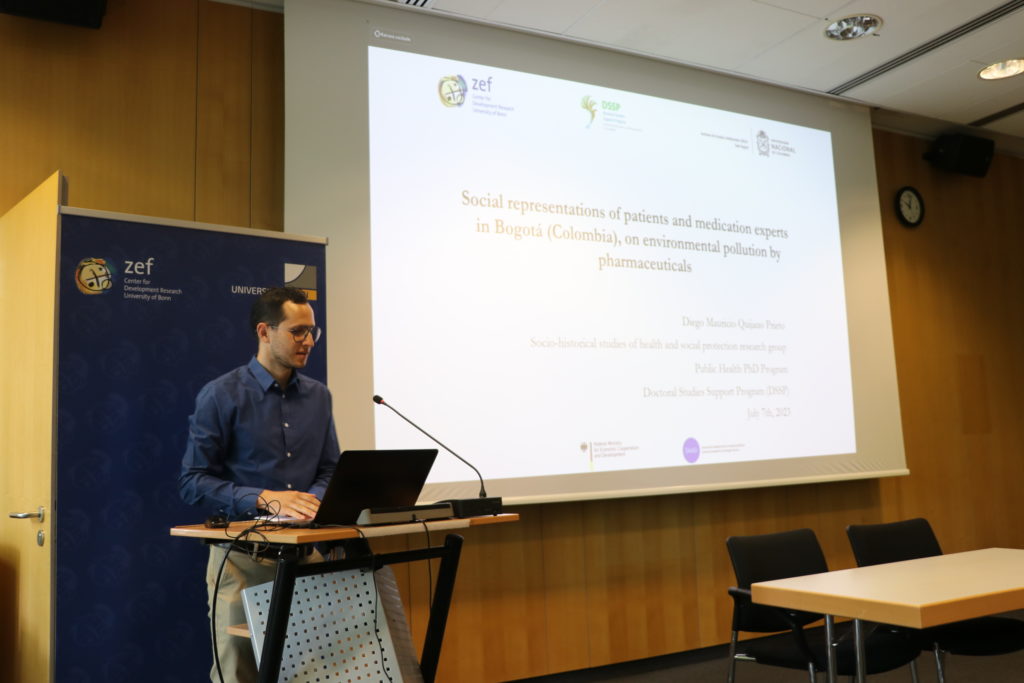
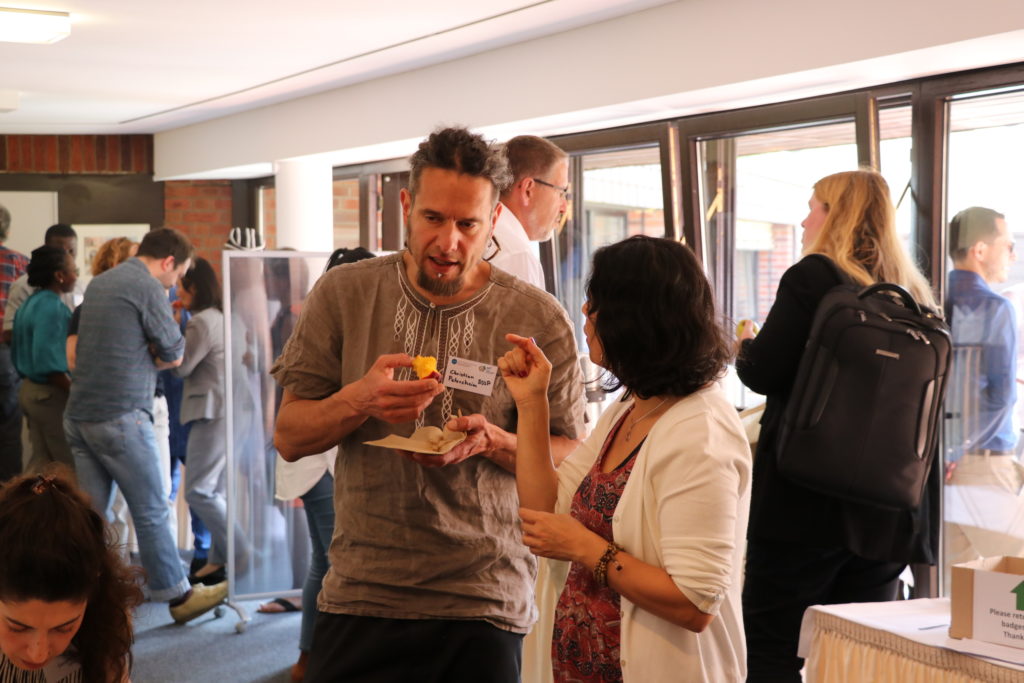
and at ZEF (left and middle)
In July, they went on and a four-day trip to Berlin, where visits to the Ibero-American Institute (IAI), the Colombian Embassy and the Lateinamerika Institut of the Freie Universität Berlin (LAI) were scheduled (see blog part 2).
Reflections of our five guests on their research stay in Germany
María Camila Montalvo Senior
” My experience in the DSSP Summer School at ZEF has been valuable for me, as I have learned about and from other ways of knowledge-sharing”.
“I come from the field of Arts and am now a PhD-student in Anthropology at the DSSP-partner Universidad Nacional de Colombia (UNAL). My participation in the DAAD midterm conference and different ZEF Public Lectures has made me realize that knowledge sharing in Germany differs from the way it is done in Colombia. In Germany, knowledge sharing is much more synthesized, direct to the point, and technical. The technical part has been a challenge for me in relation to my PhD thesis project.
Lastly, I have developed an interest in Indigenous knowledge production as I have been working with Indigenous communities from the Amazonia and Orinoquia during the last years. So far, I have not found that European institutions are highly interested in this. However, the fact of having transnational programs with other schools based in Africa and in Colombia allows us to open spaces for discussions on local and Indigenous knowledge production”.
Diego Quijano
“The Summer School in Bonn has been an incredible opportunity for me, full of challenges and learning. It has been a very interesting experience, to find a great diversity of visions to address research problems and everyday-life situations. At ZEF and in Bonn we have had the opportunity to meet and interact with people from many parts of the planet, who, from their knowledge base and experiences, have shown us other ways of seeing and understanding the world.
I have always thought walking together is better, and this has proven to be true during the DSSP Summer School. We have been supported not only by the work team and colleagues at ZEF*, but also by complete strangers, who have helped us selflessly in daily situations to solve practical problems”.
“The academic learning has been very important, but the most significant for me has been the human warmth, the spirit of collaboration and of living in diversity“.
Maria Marcela Lozano
“On my second day in Bonn, I’m looking at the Rhine from the Alter Zoll [a historical sightseeing viewpoint near the Rhine], and I close my eyes. Almost 10 years ago, I wrote from Colombia to Professor Eva Youkhana at ZEF in Bonn expressing my interest in conducting a PhD in Development Research at the University of Bonn. My work and desire to start a family made me stay in Colombia to start my doctorate there. When I open my eyes now, and yes, I see that I am at the Rhine River, not as a Uni-Bonn student, but as a doctoral student at the National University of Colombia joining the DSSP Summer School. I begin this story like this, with this image, of a dream that transforms and materializes.
The Summer School is split up between classes, the elaboration of a paper and visits to German institutions that cooperate with Colombia. The classes help me get to know new tools and invite me to review how I communicate my ideas in English, a language that is not mine. It is a challenge to communicate my ideas in English, but I quickly recognize it as a valuable exercise that would have an impact. Writing in English means opening the door to other publications that are accessible to a wider academic audience. The institutional visits opened up questions regarding many facets of cooperation with the Global South, and in turn, made me think of new ideas and possibilities related to my research project. During my stay at ZEF, I learned a lot and established new contacts with colleagues from many parts of the world”.
“Everything was a gift, but without doubt, the greatest was the confidence that this experience gave me, to open my own mental frontiers so that it is possible to reach out to the world“.
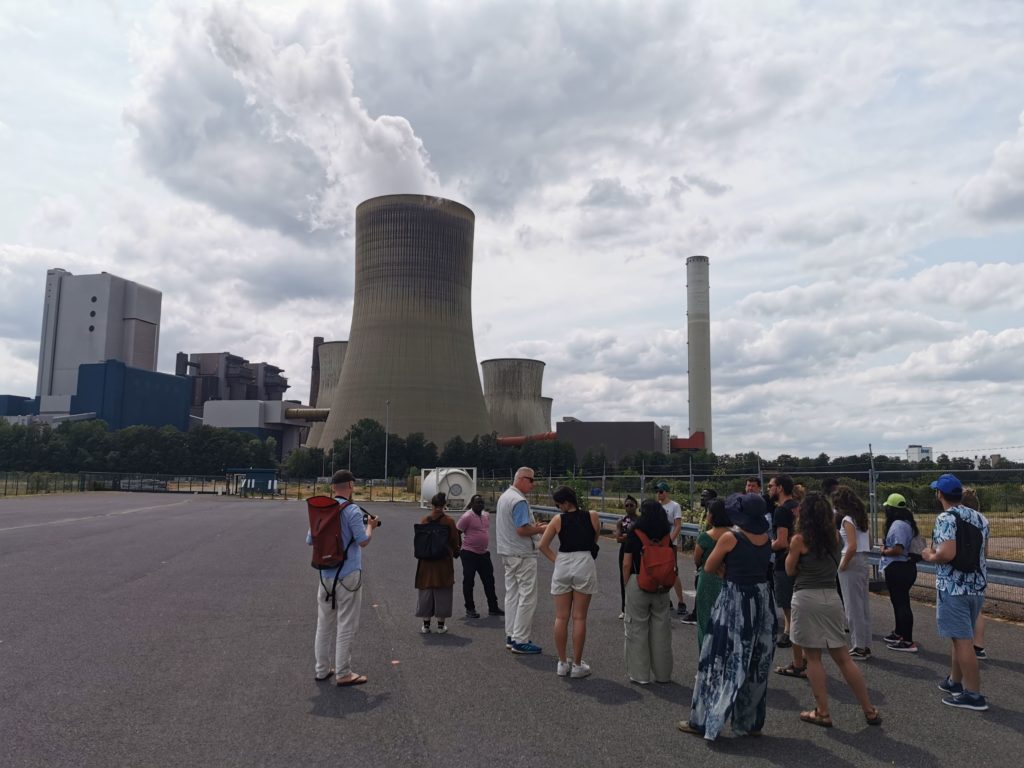
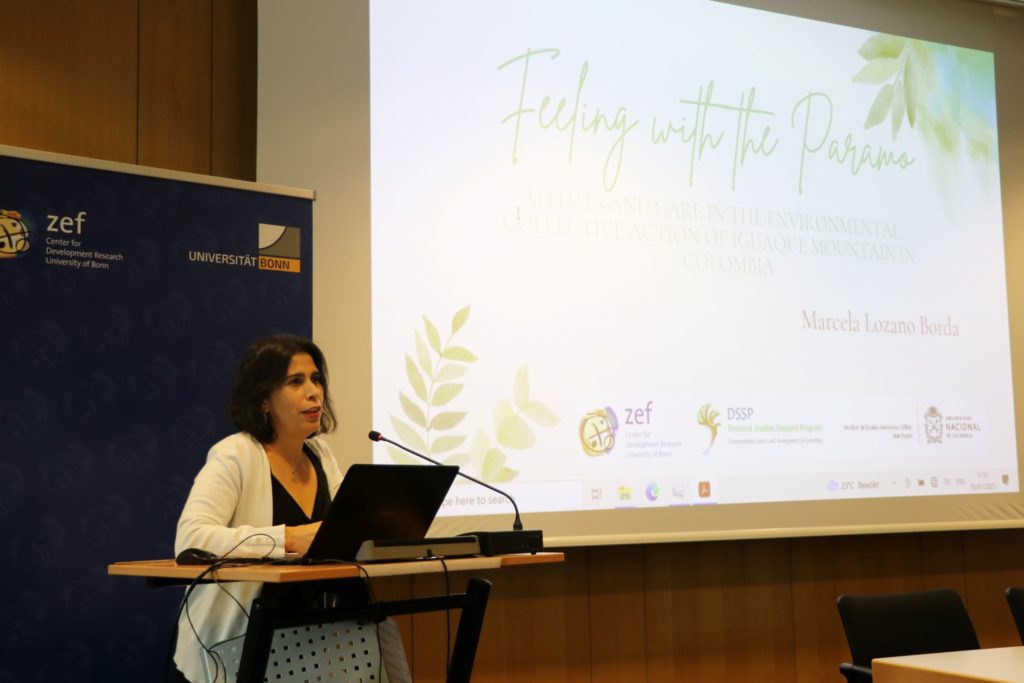
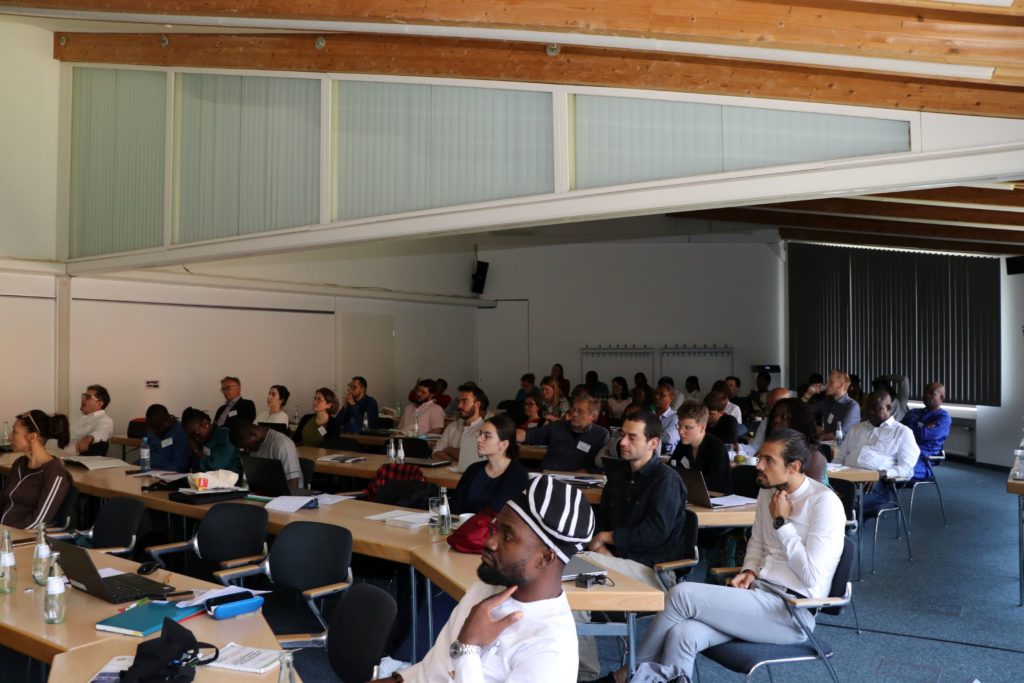
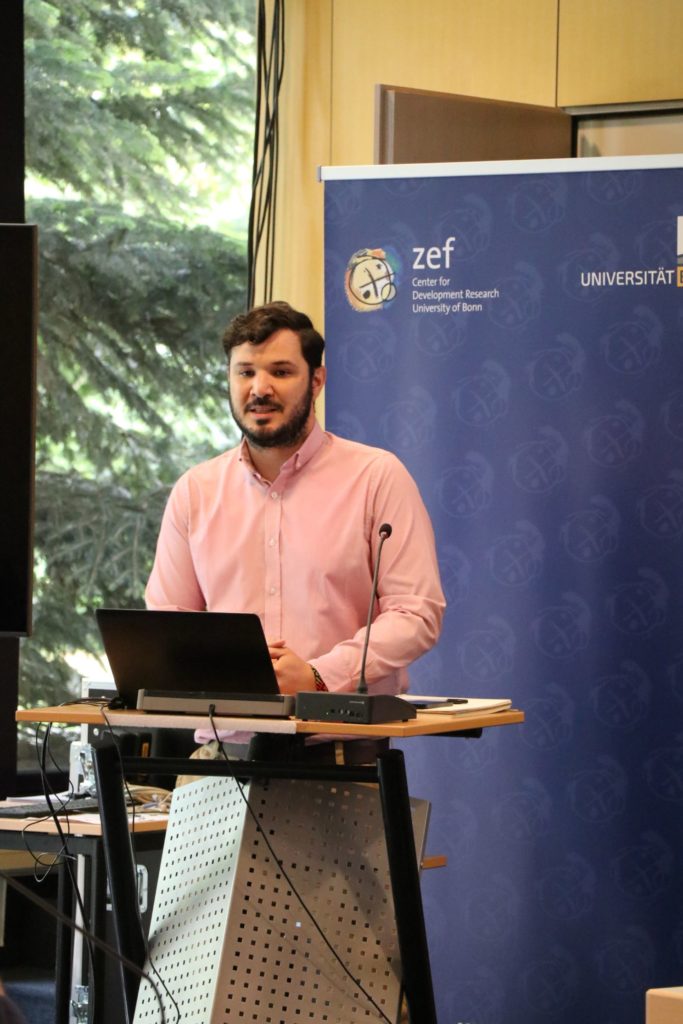
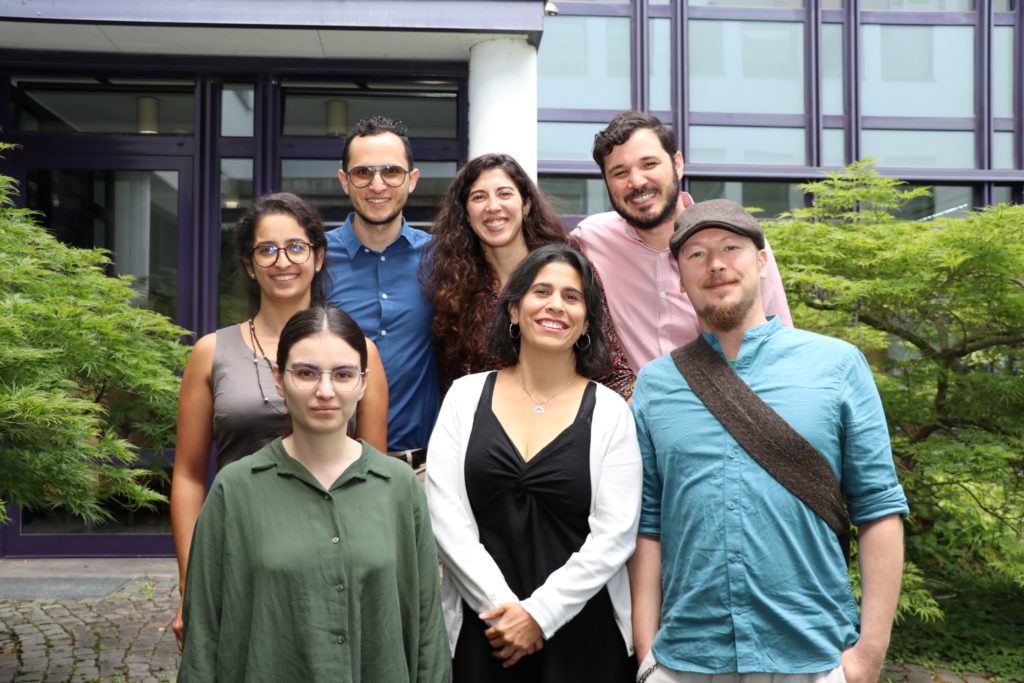
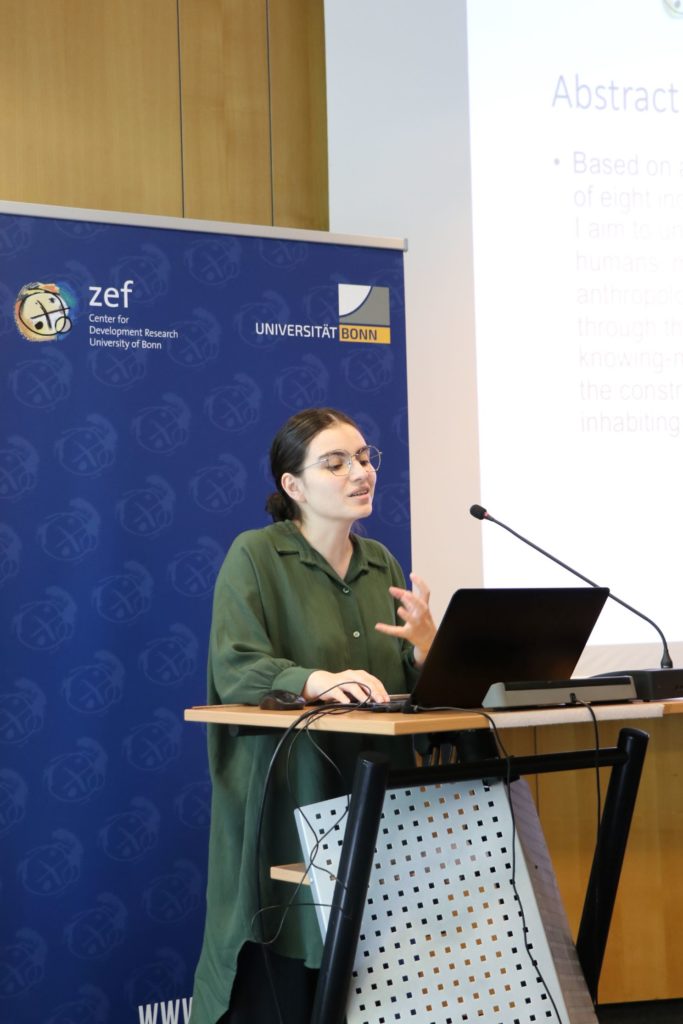
Pablo González
“When I arrived in Bonn, I did not know what to expect. Even though I speak a little bit of German, I could not understand the people and their culture. A little over a month later, I can say that I am surprised by the people here and their kindness, as well as by the support I have been receiving from my colleagues and friends.
Classes have played a fundamental role. Having qualified teachers, eager to share their knowledge and guide us, not only in academic paths but also in understanding culture and people, has made me want to continue learning and experimenting, with renewed energy.
The Summer School’s activities that I consider the most relevant are the “DAAD midterm conference“, the “Daring Cities conference“, the visit to the “German Institute for Sustainable Development (IDOS)” and the workshop “Identifying Your Competencies and Exploring Your Career Options”. I had the opportunity to interact in an intercultural and international setting, getting to know first-hand what they are currently working on and sharing the experiences that are taking place in Colombia”.
“The journey continues and many other challenges lie ahead, but I am confident that with all this support, there is nothing we cannot overcome“.
Michael Weidemann
“When admitted to the DSSP program by ZEF and IDEA, my delayed journey on this intercultural back-and-forth rollercoaster began. Supposedly aware of ‘knowing about the little I know’, I was curious to reconnect with a variety of academic and political perspectives that I, somehow, decided to leave behind when signing up for my PhD program in Amazon Studies in Leticia, after living in Colombia for almost a decade.
Starting with six weeks of seminars by international researchers from ZEF invited to Bogotá in Colombia, I was happy to see so many of my conscious and unconscious prejudices tumble. While intercultural and interlocal dialogue turned out to be as common at ZEF as I hoped for, the majority of institutions within and around German international cooperation and research we visited still corroborate overall positivist attitudes. It was challenging to see how German idiosyncrasy has institutionalized and maintained paternalism as well as attitudes of superiority within its international institutions.
However, it was a pleasure and an inspiration being able to walk along the deeply entangled global networks that are spun with and through the ZEF and its many collaborating partner institutions”.
“What I will cherish and take back with me to the jungle is the commitment to contribute to a better world for everybody, building up piece by piece and day by day”.
*The DSSP-team at ZEF consists of: Dennis Aviles, Christian Petersheim, Aline Pereira, Carolina Tobón, and Eva Youkhana
